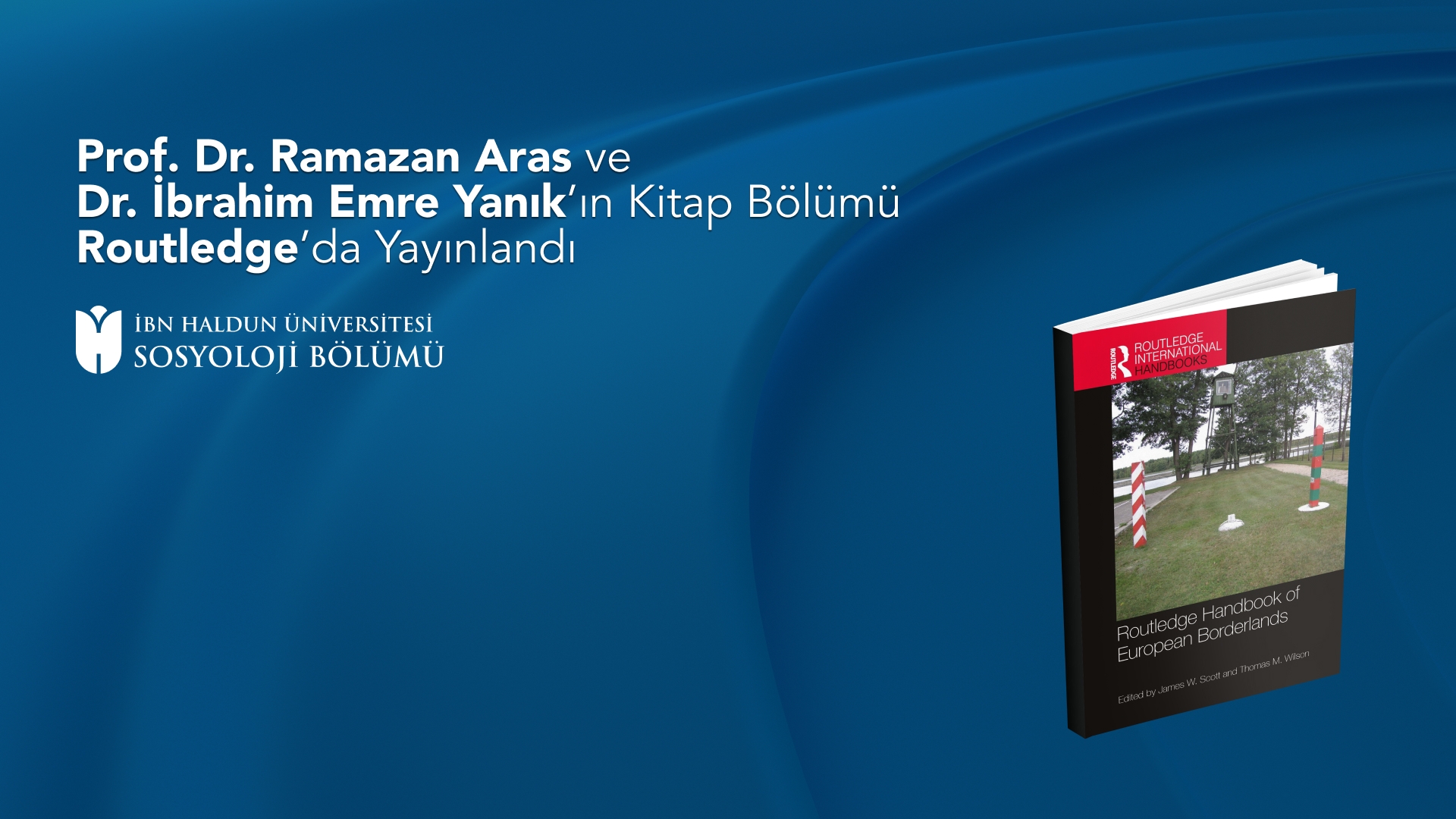


The book chapter titled “Territorial security walls, sovereignty, and the reconstruction of the nation-state” authored by Prof. Ramazan Aras, Head of the Department of Sociology at Ibn Haldun University, and faculty member Assist. Prof İbrahim Emre Yanık, has been published in the Routledge Handbook of European Borderlands by Routledge.
In the book, edited by James W. Scott and Thomas M. Wilson, Prof. Ramazan Aras and Assist. Prof. İbrahim Emre Yanik analyze the Turkish-Syrian security wall as an understudied critical case. The article conceptualizes the construction of the wall as a re-inscription of the sovereignty and power of the contemporary Turkish nation-state. They argue that the border wall is not merely a physical and militarized intervention that territorially separates Türkiye from Syria and subverts centuries-old kinship, familial, and religious networks among the people in the region. It is also emphasized that this structure is a symbolic apparatus reflecting a new epistemic and ontological paradigm in the region.
According to the article, the wall represents Türkiye's political, historical, and cultural interests, as well as fears and anxieties towards regional ethnic-nationalist and sectarian mobilizations.
The study also claims that Türkiye's security wall should be seen as "another layer of security for the European border regime." In this context, it is stated that the wall functions as an aggressive mechanism filtering the unwanted mobility of human subjects into EU territories.
We congratulate our faculty members and wish them continued success.